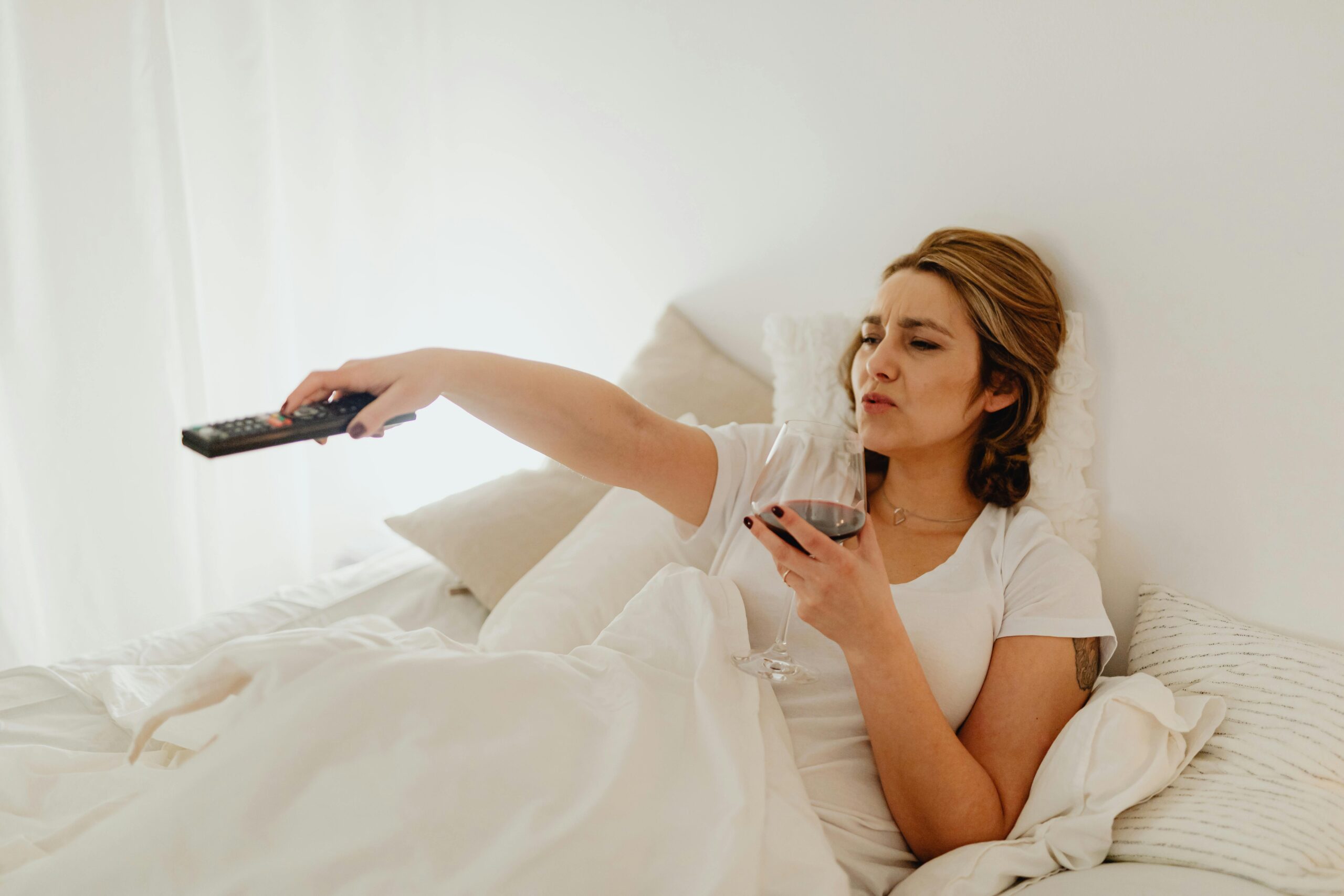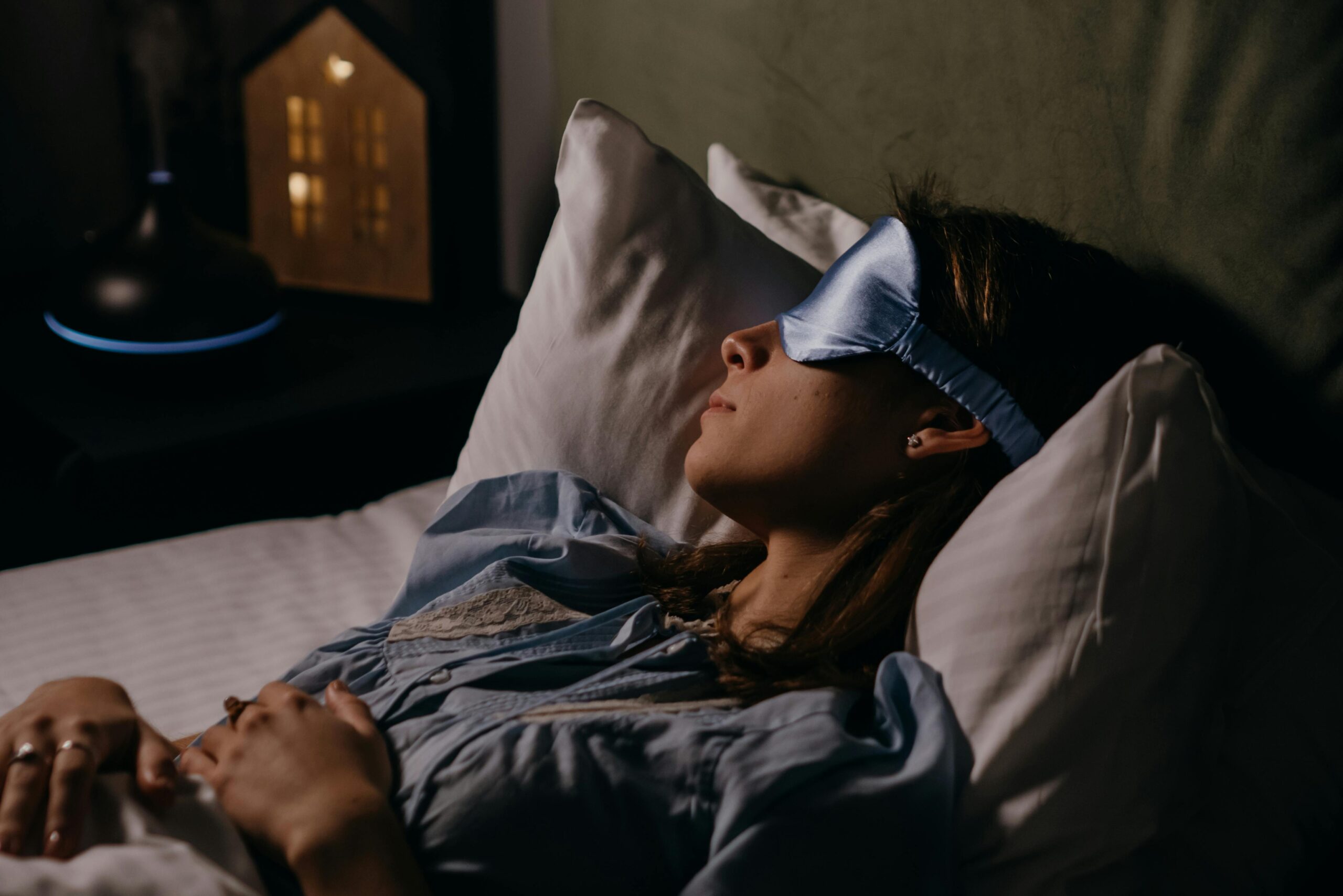The luckiest among us can fall asleep in pure chaos—during plane take-off, in a home with video game-playing teenagers, in the passenger seat of a car. Some of us need a more structured environment, ranging from pure silence to white noise in the form of whale sounds, lapping ocean waves, or the gentle whirring of a fan. The soundscape that sends me into dreamland is Andrew Gold’s “Thank You for Being a Friend,” otherwise known as the theme song to the eighties TV show The Golden Girls.
For almost as long as I can remember, wisecracks between aging besties and housemates Dorothy, Rose, Blanche, and Sophia (think of them as the proto-cast of And Just Like That…) and the canned laughter that follows have been the soundtrack to my evenings. I spent years loading the DVDs into my laptop at bedtime, to be perched precariously on the corner of the bed next time (remember when laptops could play DVDs?). Now, I cue up an episode on Hulu, set my phone’s sleep timer, and shut my eyes. The Golden Girls is my version of a comfort show, a genius term that defines the idea of a TV show that you’ve seen approximately nine thousand times, that puts you at ease with its familiar rhythms and low-stakes drama. The phenomenon is popular enough that numerous Reddit threads are devoted to sharing comfort TV show suggestions—the concept runs the gamut from feel-good series like Bob’s Burgers to folks who can somehow fall asleep to the various rare medical nightmares on House.

Read more: Should You Go to Bed With Wet Hair?
Though my beloved white-haired Miami family is excellent at lulling me to sleep, I’ve always wondered if I was setting myself up for some sleep disaster to come. After all, a streaming service subscription is not your standard bedtime requirement. But Sujay Kansagra, M.D., the director of the Pediatric Neurology Sleep Medicine Program and Pediatrics professor at Duke University Medical Center, tells me that it’s not so surprising that my favorite sitcom can double as a lullaby.
According to Dr. Kansagra, there are two scenarios in which background noise or familiar music may help the listener fall asleep. “The first is for people that are suffering from insomnia and having a hard time preventing stressful or anxiety-provoking thoughts from arising while they are laying in bed,” he says. Boring or familiar background audio can distract the person from their distressing thoughts, helping them relax and eventually fall asleep. The second scenario is that the noise may, over time, become a “sleep-onset association” for the listener, or something in your environment that you associate with the process of falling asleep. “It can be having a fan on, noise in the background, even the flavor of toothpaste in your mouth,” he says. “All of these are subtle signs to your brain that it is time for bed. And therefore it can help you fall asleep if it is regularly associated with bedtime.” Though a sitcom about three widows and a divorcee isn’t the most traditional sleep-onset association (like nightly skincare routines and a white noise machine, to name a few), if it’s working for me, it may be worth sticking with the habit.
“When it comes to sleep, if you find these relaxing things helpful to getting a great night of sleep, and it’s not harmful, I do not argue with success,” Dr. Kansagra says. Still, he’s not giving the practice a full-on green light.
“I do worry that some people use these interventions as band-aids and do not get to the core source of the problem, and thus get more frustrated if it eventually stops working,” he says. “For example, if you suffer from chronic insomnia, the mainstay is cognitive behavioral therapy for insomnia.” In lieu of what he calls “sleep ‘hacks’, Dr. Kansagra is interested in gently pushing patients toward real solutions that solve the problem at its core. “There are numerous sleep disorders for which we have proven and effective solutions,” he reminds me.

Read more: Unwind With These Bedtime Yoga Stretches For Better Sleep
Just like there are threads devoted to the best possible choice of comfort show, there are folks online who are attempting to break the habit of needing to sleep with the tv on, either to better improve their sleep hygiene or simply to mix things up. I, for one, need to stop so that I don’t spend so much time crawling under the bed to pick up the stray Airpods that I’ve tossed and turned to all corners of the bedroom during the night. After all, needing any crutch to fall asleep puts you in a challenging position—what if you forget your white noise speaker, want to cut down your electricity bill and stop running a fan all night, or, god forbid, Golden Girls gets removed from Hulu? If you’re looking to break up with your comfort show, Dr. Kansagra has a few ideas.
“There are so many complex factors when it comes to helping somebody sleep,” he says. “The foundations for good sleep start with great sleep hygiene, which includes having a nighttime routine; avoiding excessive light exposure; keeping your sleep schedule the same throughout the week; avoiding excessive caffeine, nicotine, and alcohol; and having a cool, quiet, and comfortable sleeping environment.” Though implementing those changes can help folks with light trouble sleeping, he encourages people with genuine sleep disorders—or who think they might be dealing with one—to make an appointment with a physician. “For those with sleep disorders like insomnia, restless leg, or circadian rhythm problems, the solution involves finding a sleep physician or sleep health expert who can guide you through the proper therapies so you don’t become reliant on sleep crutches.”
Eventually, I hope to earn an A on my sleep hygiene report card—to outgrow or put in the work it takes to learn new sleep habits. But until then, you can find me at bedtime, listening to the sounds of one octogenarian and three fifty-somethings working on their careers, lamenting their dates, and eating cheesecake.

Read more: Bedtime Mocktail Series: Peach Blueberry Dream
Have feedback on our story? Email [email protected] to let us know what you think!

Shop Pillows
The Essential Organic Pillow Collection
Gentle, breathable, non-toxic support.







